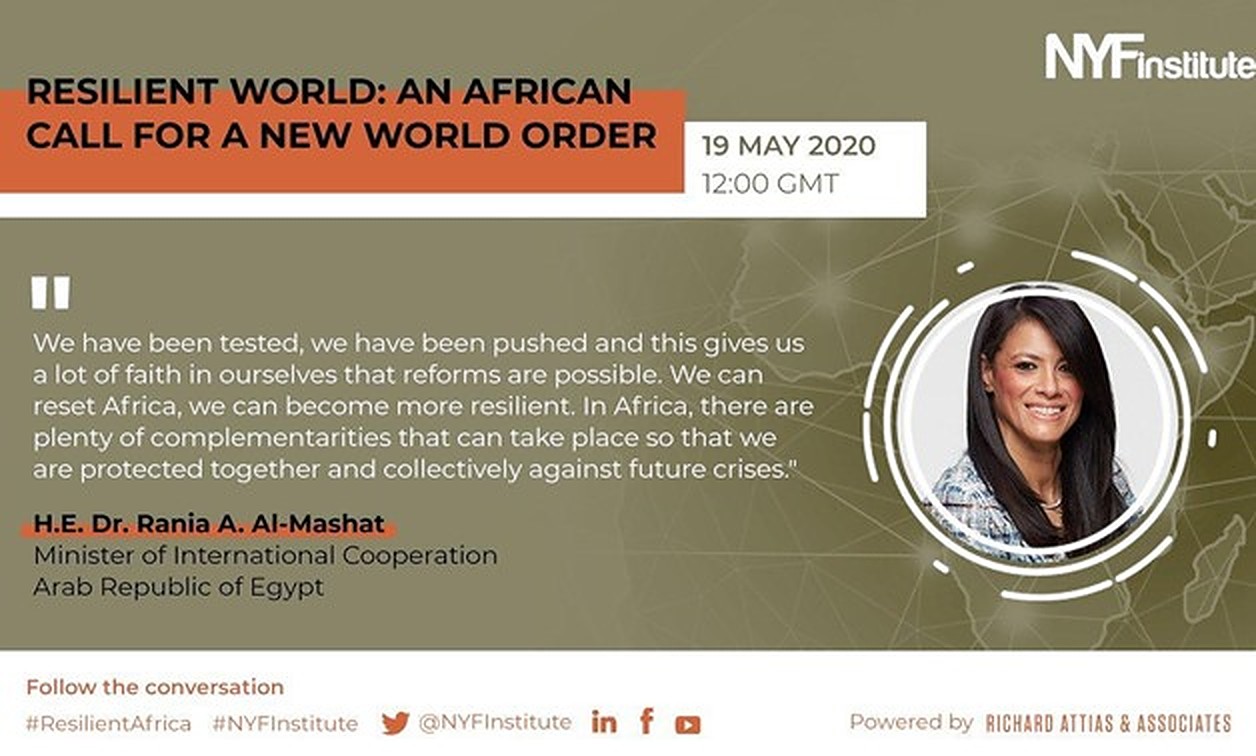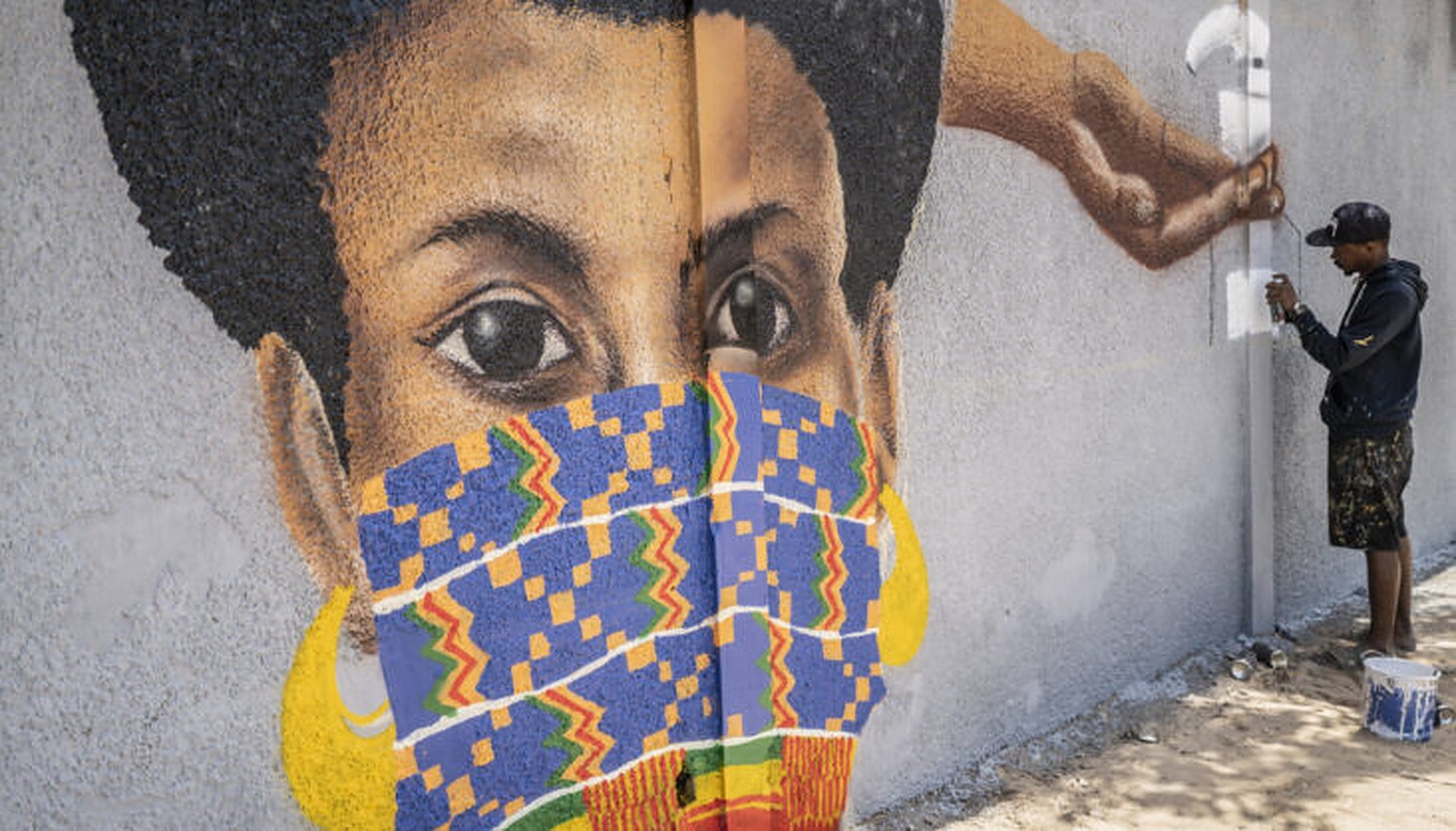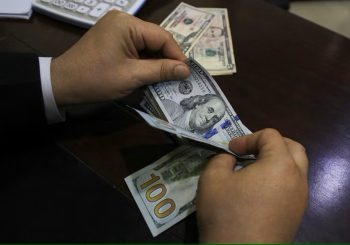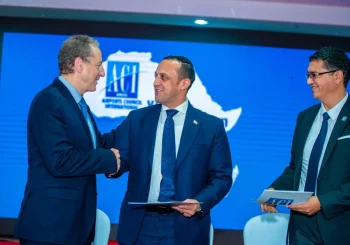
For the last four decades, global supply chains were at the heart of much of manufacturing production. However, since the COVID-19 pandemic and the closure of many production sites, these supply chains have been disrupted, leading to a massive reduction in global trade.
Several experts have reiterated that the pandemic has shown that over-reliance on solely international trade partners can put businesses and local economies at a greater risk when global disruptions occur.
During a high-level virtual event dedicated to Africa titled “Resilient World: An African Call for a New World Order”, which was the first of its kind and included five African heads of states and global leaders, Minister of International Cooperation Dr. Rania Al Mashat noted that due to the challenges that global supply chains are now facing, it is the best time to look at regional supply chains in Africa.
“There are plenty of complementarities that can take place so that as a region we are protected collectively and together to face future crises,” Al Mashat stated.
“the pandemic has acted as a catalyst for innovation across the region”
The minister also highlighted that the “pandemic has acted as a catalyst for innovation across the region, it has pushed us and tested us, and instilled faith in our selves that reforms are possible, and with this we can reset Africa.”
Held by the New York Forum Institute, the virtual roundtable gathered African heads of state and governments to share exemplary leadership and present lessons to the world from Africa, and how the region addressed the socio-economic risks that took place.
Pleasure to have participated amongst African HOS, Ministers & other leaders in the #NYFInstitute High Level Virtual Table. The pandemic has acted as a catalyst for innovation, it has pushed us, tested us & instilled faith in our selves that reforms are possible. #Africa #Egypt pic.twitter.com/CXKaLWQPG4
— Rania A. Al Mashat (@RaniaAlMashat) May 19, 2020
In her presentation, Al Mashat touched upon Egypt’s experience in pushing forward with structural reforms in an expedited manner, particularly in regards to widening social safety nets for vulnerable groups.
In regards to widening the social safety net, 60,000 households were added to the Takaful and Karama program, and an additional 100,000 will be added.
An increase in payments to women community leaders in rural areas was also implemented, from 350 EGP to 900 EGP per month.
President Bio of Sierra Leone noted that his government had learned a lot from the Ebola experience and brought together people to develop a national structure to contain the virus, as well as implementing inter-district lockdowns and curfews to limit interactions.
“Short-term collaboration to fight the pandemic could bring longer-term benefits by strengthening regional institutions.”
Dr. Al Mashat also highlighted the significance of humility and collaboration during these times, noting that no country is alone in the fight against the virus and that solidarity and sharing best experiences is the path towards a resilient future.
“Short-term collaboration to fight the pandemic could bring longer-term benefits by strengthening regional institutions, improving regional infrastructure and connectivity,” experts Cecile Fruman and Mandakini Kaul note.
For instance, in mid-February 2020, the African Union launched a continental strategy to help countries better respond to the virus through the Africa Centre for Disease Control and Prevention, which has been providing expertise in formulating strategies, data, as well as training in technical areas.
Previously, President of Senegal Macky Sall stated that there is now an urgent need for a new world order for Africa that “that puts human beings and humanity at the centre of international relations.”
“The new world order that I am calling for requires mutual trust and a sincere willingness to cooperate on issues of common interest and shared values, while respecting our differences and diversities,” the president said.
Coming together, this is an opportunity for African countries to depend less on global supply chains and remove tariffs, particularly on food and other necessities.






Comments (0)